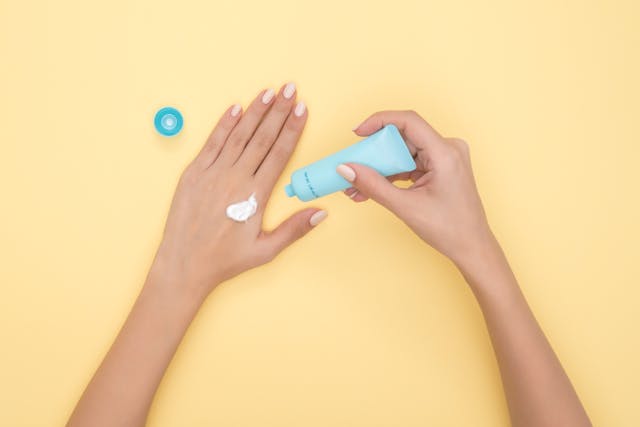Vaseline, also known as petroleum jelly, has been a household staple for over a century. It is a versatile product that can be used for a variety of purposes, including moisturizing dry skin, protecting minor cuts and burns, and preventing diaper rash. However, it is not without its drawbacks. Some people are allergic to petroleum jelly, and it can clog pores and exacerbate acne. Additionally, it is a byproduct of the oil refining process, which raises concerns about its environmental impact.
Fortunately, there are many natural and organic alternatives to Vaseline that offer similar benefits without the drawbacks. These alternatives are made from ingredients like beeswax, shea butter, coconut oil, and jojoba oil, which are all-natural and free from harmful chemicals. In this article, we will explore some of the best alternatives to Vaseline and their benefits. We will also provide tips for choosing the right alternative for your needs and discuss safety precautions to keep in mind when using them.
Key Takeaways
- There are many natural and organic alternatives to Vaseline that offer similar benefits without the drawbacks.
- Some of the best alternatives are made from ingredients like beeswax, shea butter, coconut oil, and jojoba oil.
- When choosing a Vaseline alternative, it’s important to consider your individual needs and any safety precautions that may apply.
Understanding Petroleum Jelly and Its Drawbacks
Petroleum jelly, also known as petrolatum, is a semi-solid mixture of hydrocarbons that is derived from petroleum, a fossil fuel. It is commonly used as a moisturizer, lubricant, and protective barrier for the skin. However, there are some drawbacks associated with the use of petroleum jelly that should be taken into consideration.
Composition of Petroleum Jelly
Petroleum jelly is made from a byproduct of the oil refining process, which involves extracting and processing crude oil. The liquid paraffin or paraffin oil is separated from the crude oil and then undergoes a purification process to remove impurities. The resulting product is a semi-solid mixture of hydrocarbons that is odorless and colorless.
Health and Environmental Concerns
One of the main concerns associated with the use of petroleum jelly is the presence of polycyclic aromatic hydrocarbons (PAHs), which are toxic compounds that can be found in crude oil. PAHs have been linked to various health problems, including cancer and reproductive issues. However, the levels of PAHs in petroleum jelly are considered to be low and are not believed to pose a significant risk to human health.
Another environmental concern associated with petroleum jelly is the fact that it is a petroleum-based product. The extraction and processing of petroleum can have negative impacts on the environment, including air and water pollution, habitat destruction, and climate change.
Common Uses and Limitations
Petroleum jelly is commonly used as a moisturizer for dry and chapped skin, as well as a lubricant for various purposes. It is also used as a protective barrier for the skin, such as in the case of diaper rash. However, there are some limitations to its use. For example, it can clog pores and exacerbate acne, and it may not be effective for treating certain skin conditions.
Overall, while petroleum jelly can be a useful product for certain purposes, it is important to be aware of its drawbacks and limitations. Consumers should consider alternative products that are free of petroleum and other potentially harmful ingredients.
Natural and Organic Alternatives
When it comes to finding an alternative to Vaseline, natural and organic options are a great choice for those who want to avoid petroleum-based products. Here are some options to consider:
Plant-Based Oils and Butters
Plant-based oils and butters are a popular choice for those who want a natural and organic alternative to Vaseline. Shea butter, cocoa butter, and jojoba oil are all excellent options. These ingredients are known for their moisturizing properties and can help soothe dry, cracked skin. Fractionated coconut oil and tamanu oil are also great choices. They are lightweight and non-greasy, making them ideal for daily use.
Beeswax and Wax-Based Products
Beeswax is a natural wax that is often used in skincare products. It has a thick, creamy texture that is similar to Vaseline. Beeswax can help lock in moisture and protect the skin from environmental damage. Wax-based products, such as soy wax and lanolin, are also great alternatives. They provide a protective barrier that helps prevent moisture loss.
Specialized Natural Ointments
There are several specialized natural ointments that can be used as an alternative to Vaseline. These products are often made with organic ingredients and are USDA-certified organic. Organic sunflower oil is a common ingredient in these ointments. It is rich in vitamin E and helps soothe and nourish the skin. Some natural ointments also contain herbs and essential oils that can help promote healing and relieve skin irritation.
Overall, natural and organic alternatives to Vaseline are a great choice for those who want to avoid petroleum-based products. These options are gentle on the skin and can help soothe and moisturize dry, cracked skin. Whether you choose plant-based oils and butters, beeswax and wax-based products, or specialized natural ointments, you can feel confident that you are using a product that is good for your skin and the environment.
Benefits of Vaseline Alternatives
When it comes to skin care, there are a variety of products available in the market. One of the most commonly used products is Vaseline, which is known for its moisturizing properties. However, there are a number of alternatives to Vaseline that offer similar benefits and more.
Skin Nourishment and Moisturization
Vaseline alternatives like eczema cream are formulated to provide nourishment and moisturization to the skin. These products contain essential nutrients such as vitamin E, which is known to nourish and protect the skin. They also help to lock in moisture, preventing the skin from drying out. This makes them ideal for people with dry skin, eczema, and psoriasis.
Safety and Sensitivity Considerations
Vaseline alternatives are often formulated to be safe and gentle on the skin. Many of these products are fragrance-free, hypoallergenic, and gluten-free, making them suitable for people with sensitive skin. They are also cruelty-free and vegan, which is important for people who are conscious about the impact of their choices on the environment and animals.
Environmental Impact and Sustainability
Vaseline alternatives are often formulated with sustainability in mind. These products are designed to be eco-friendly and reduce the impact on the environment. They are often made from natural ingredients that are sustainably sourced. Additionally, many of these products are endorsed by organizations such as the National Eczema Association, which adds to their credibility.
In conclusion, Vaseline alternatives offer a number of benefits over traditional petroleum jelly. They provide nourishment and moisturization to the skin, are safe and gentle, and are eco-friendly. With the variety of options available in the market, it’s easy to find a product that suits your skin type and preferences.
Applications and Uses of Alternatives
When it comes to finding an alternative to Vaseline, there are several options available in the market. Here are some of the most popular alternatives and their applications and uses:
Healing Balms and Ointments
Healing balms and ointments are a great alternative to Vaseline when it comes to treating dry and cracked skin. They are made using natural ingredients such as beeswax, shea butter, and coconut oil, which help to moisturize and soothe the skin. Some popular options include Waxelene, Aquaphor, and Burt’s Bees Res-Q Ointment.
These healing balms and ointments are also effective in treating minor cuts, burns, and insect bites. They help to reduce inflammation and prevent infection by creating a barrier between the skin and bacteria.
Lip Care Solutions
Chapped lips can be a common problem, especially during the winter months. Lip balms are a great alternative to Vaseline when it comes to treating dry and cracked lips. They are available in various flavors and formulations, including natural and organic options.
Some popular lip balms include Burt’s Bees Beeswax Lip Balm, EOS Lip Balm, and Carmex Lip Balm. These lip balms help to moisturize and protect the lips from the harsh elements, such as wind and cold weather.
Multipurpose Beauty Products
Multipurpose beauty products are a great alternative to Vaseline when it comes to using a single product for multiple purposes. These products are available in various formulations, including creams, lotions, and oils.
Some popular multipurpose beauty products include coconut oil, argan oil, and shea butter. These products can be used as a moisturizer, hair conditioner, makeup remover, and even as a fragrance. They are also available in various fragrances and formulations to suit different skin types and preferences.
In conclusion, there are several alternatives to Vaseline available in the market that can be used for various applications and uses. It is important to choose a product that suits your skin type and preferences and to always read the label before using any new product.
Choosing the Right Vaseline Alternative
When it comes to finding a Vaseline alternative, there are a few things to consider to ensure that you choose the right product for your skin care needs. Consulting with dermatologists, identifying personal skin care needs, and considering product attributes are all important factors to keep in mind.
Consulting with Dermatologists
If you have specific skin concerns or conditions, it is always a good idea to consult with a dermatologist before trying any new products. They can provide valuable insight into what ingredients to look for or avoid based on your skin type and condition. Additionally, they can recommend specific products or brands that may work best for you.
Identifying Personal Skin Care Needs
Everyone’s skin is different, so it’s important to identify your personal skin care needs before choosing a Vaseline alternative. If you have dry or sensitive skin, you may want to look for products that contain butters, glycerin, or ceramides to help moisturize and protect the skin. If you prefer petroleum-free options, mineral oil may be an ingredient to avoid.
Considering Product Attributes
When choosing a Vaseline alternative, there are a variety of product attributes to consider. Some people may prefer USDA certified organic options, while others may prioritize fragrance-free or hypoallergenic products. It’s important to read product labels and research ingredients to ensure that the product meets your personal preferences and needs.
Overall, finding the right Vaseline alternative requires careful consideration of personal skin care needs, product attributes, and consulting with professionals when necessary. By taking the time to research and choose the right product, you can ensure that your skin stays healthy and moisturized.
Safety and Precautions
When looking for alternatives to Vaseline, it is important to keep safety and precautions in mind. Here are some things to consider before trying out a new product.
Understanding Ingredient Labels
Always read the ingredient labels carefully to avoid any potential allergic reactions or skin irritations. Look for products that are fragrance-free, hypoallergenic, and gluten-free if you have sensitive skin or allergies.
Allergies and Skin Reactions
If you have a history of allergies or skin reactions, it is important to test a small patch of skin before applying a new product all over the body. This can help to identify any potential allergic reactions before they become a bigger problem.
Avoiding Harmful Substances
Avoid products that contain harmful substances such as carcinogens or bacteria. Look for products that use natural ingredients such as essential oils or humectants, which can help to soothe and moisturize the skin without causing inflammation.
Some recommended alternatives to Vaseline include Doctor Rogers Restore Healing Balm and Pipette Baby Balm, both of which are fragrance-free and hypoallergenic. These lotions are gentle on the skin and can be used for a variety of purposes, from soothing chapped lips to healing dry, cracked skin.
In conclusion, when looking for alternatives to Vaseline, it is important to keep safety and precautions in mind. By understanding ingredient labels, testing for allergies, and avoiding harmful substances, you can find a product that works for you and keeps your skin healthy and moisturized.
Special Considerations for Specific Conditions
Eczema and Psoriasis Care
Individuals with eczema or psoriasis often suffer from dry, itchy skin that can be worsened by the use of petroleum-based products like Vaseline. Instead, they should look for alternatives that are specifically formulated to soothe and moisturize irritated skin.
One option is to use products that contain natural ingredients like aloe vera, coconut oil, or shea butter. These ingredients can help to hydrate the skin and reduce inflammation without causing further irritation.
Another option is to look for products that have been approved by organizations like the National Eczema Association. These products have been tested and shown to be effective for people with eczema or psoriasis, and they are often free from the harsh chemicals and fragrances that can exacerbate symptoms.
Treating Burns and Sunburn
When it comes to treating burns and sunburn, it’s important to choose products that are gentle and non-irritating. Petroleum-based products like Vaseline can actually trap heat in the skin and make the burn worse, so it’s best to avoid them.
Instead, individuals can look for products that contain cooling ingredients like aloe vera, menthol, or camphor. These ingredients can help to soothe the skin and reduce inflammation, which can speed up the healing process.
It’s also important to keep the skin moisturized to prevent dryness and peeling. Look for products that contain hydrating ingredients like glycerin or hyaluronic acid, and avoid anything that contains alcohol or fragrances, which can be drying.
Minimizing Scars and Stretch Marks
For individuals who are looking to minimize the appearance of scars or stretch marks, there are a number of alternatives to Vaseline that can be effective.
One option is to look for products that contain ingredients like vitamin E, which has been shown to help improve the appearance of scars. Another option is to use products that contain silicone, which can help to smooth out the skin and reduce the appearance of scars and stretch marks.
It’s also important to keep the skin moisturized to promote healing. Look for products that contain hydrating ingredients like cocoa butter or jojoba oil, and be sure to massage the product into the skin to improve circulation and promote healing.
Emerging Trends in Natural Skin Care
Innovations in Organic Formulations
Natural and organic ingredients have become increasingly popular in the beauty industry, and for good reason. Many consumers are turning to these types of products as they seek to reduce their exposure to harmful chemicals and toxins. As a result, many companies are now incorporating organic ingredients into their skin care formulations.
One such ingredient is coconut oil, which is known for its moisturizing and nourishing properties. It is often used in place of petroleum-based products like Vaseline. Other popular organic ingredients include shea butter, argan oil, and jojoba oil.
The Rise of Vegan and Cruelty-Free Products
Another trend in natural skin care is the rise of vegan and cruelty-free products. These types of products are becoming increasingly popular as more people become aware of the negative impact that animal testing and animal products can have on the environment and on animal welfare.
Brands like Lush and Pacifica are leading the way in this trend, offering a wide range of vegan and cruelty-free products that are both effective and environmentally friendly.
Advancements in Sustainable Packaging
Finally, there is a growing emphasis on sustainable packaging in the natural skin care industry. Many companies are now using biodegradable or recyclable materials for their packaging, reducing waste and minimizing their impact on the environment.
Some brands are even going a step further by using innovative materials like mushroom-based packaging or reusable glass jars.
Overall, these emerging trends in natural skin care reflect a growing awareness of the importance of using safe, effective, and environmentally friendly products. As consumers continue to demand more natural and sustainable options, it is likely that we will see even more innovations in the industry in the years to come.
Frequently Asked Questions
What natural products can be used to moisturize lips instead of Vaseline?
There are several natural alternatives to Vaseline that can be used to moisturize lips. Some popular options include coconut oil, shea butter, beeswax, and cocoa butter. These natural products are rich in vitamins and minerals that can help to nourish and hydrate the lips.
Which organic substances are recommended for treating dry skin?
Organic substances that are recommended for treating dry skin include jojoba oil, almond oil, avocado oil, and argan oil. These oils are rich in antioxidants, vitamins, and minerals that can help to soothe and moisturize dry skin.
What are safe alternatives to Vaseline for baby skincare?
For baby skincare, it is important to use safe and gentle alternatives to Vaseline. Some options include coconut oil, shea butter, and calendula oil. These natural products are gentle on baby’s delicate skin and can help to soothe and moisturize dry patches.
How can I treat wounds without using petroleum-based jellies?
There are several non-petroleum based options for treating wounds. Some popular options include honey, aloe vera, and coconut oil. These natural products have antibacterial and anti-inflammatory properties that can help to promote healing and prevent infection.
What are effective non-petroleum based options for facial moisturization?
Effective non-petroleum based options for facial moisturization include jojoba oil, argan oil, and rosehip oil. These oils are rich in antioxidants and vitamins that can help to hydrate and nourish the skin.
What can be used for skin protection during slugging if not Vaseline?
If you prefer not to use Vaseline for skin protection during slugging, there are several alternatives to consider. Some options include shea butter, cocoa butter, and lanolin. These natural products can help to lock in moisture and protect the skin while you sleep.















Comments are closed.